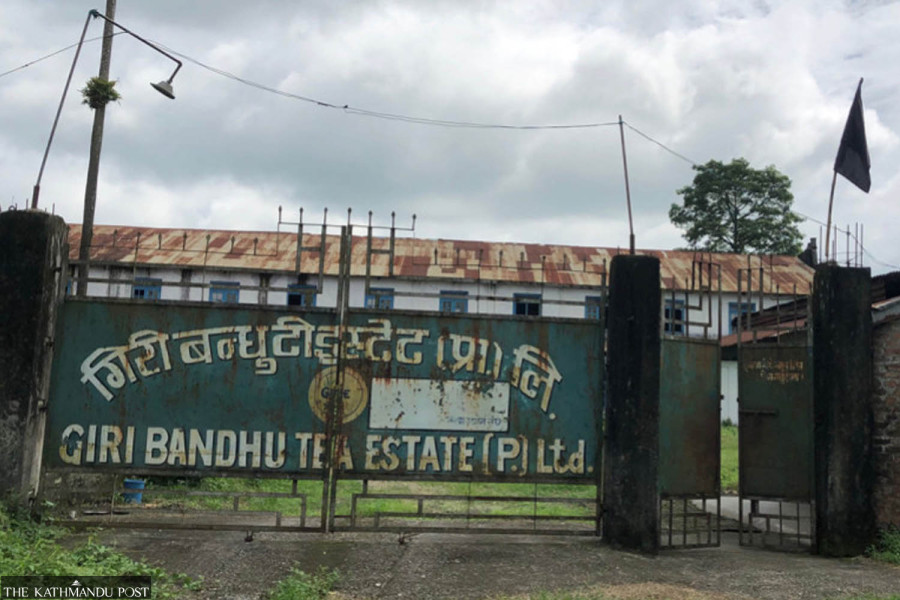National
Court quashes permit to Giri Bandhu estate to swap land above legal limit
Law was revised in 2020 to add provision for exchanging excess land or selling it to pay liabilities after firm closure.
Binod Ghimire
In a major setback for the erstwhile KP Sharma Oli government, the Supreme Court on Wednesday overturned its decision to allow the Jhapa-based Giri Bandhu Tea Estate to swap land exceeding the legal ownership ceiling in any other place within Koshi Province.
The court’s constitutional bench led by Bishowambhar Prasad Shrestha ruled that the April 26, 2021 decision of the Oli Cabinet contravened Section 12 (C) of the Land Act 1964 and was immature.
“Therefore, the decision and subsequent actions taken after that have been quashed,” reads a point in the brief ruling. Justices Ishwar Prasad Khatiwada, Prakash Man Singh Raut, Sapana Malla Pradhan and Sushma Lata Mathema are the other members of the bench.
The Oli government had allowed the owners to swap 343.19 bighas (1 bigha equals 6,773 square metres) of land occupied by the tea estate based on a revision to the Land Act (1964).
In January 2020, under the Oli administration, the Act was revised, inducting a provision to swap the land or sell it to pay the company’s liabilities if it goes into liquidation.
The Cabinet decision, however, was not implemented following a Supreme Court interim order. Responding to three writ petitions from advocates Om Prakash Aryal, Om Prakash Mishra and Bhakta Raj Bharati, the court in August 2021 had barred the decision’s execution.
When the Act came into force, an individual could possess a maximum of 28 bighas of land, including three bighas to build a residence. The government would confiscate additional land and distribute it among the landless. But there was no ceiling for the land owned for industrial or commercial purposes. This is why three owners of Giri Bandhu Tea Estate could hold hundreds of bighas of land. As per the Act, if the company owing the land beyond the ceiling is shut, it becomes government property.
However, after the amendment, such companies or institutions could sell their land with the government’s permission, in the event of their dissolution or liquidation. Another provision was added to the Act through the amendment, targeting the companies that are not dissolved, which says the government can let them swap the land or move to another location if there are valid reasons.
The amendment had opened the door for tea estate owners to shift plantations to cheaper lands and sell the land in the Birtamod area where the estate is seated. The land in the Birtamod area is among the most expensive in the entire province.
“This is a precedent-setting verdict against policy corruption,” Aryal told the Post. “The court has barred the misuse of such land for commercial interests.”
Though the court stopped land swapping in the case of the tea estate, it refused to scrap the legal amendment as demanded by the petitioners. One of the points in the ruling allows such land swapping but only after fulfilling specified conditions.
“Generally, the land above the ceiling must be confiscated. Without contradicting the principle, it is directed to manage the land [swap] after ascertaining the area of the land [to be swapped], its tea productivity and feasibility for production, its price, and other technical aspects,” reads the court order.
Aryal says the grounds on which the court has allowed land swap would be clear once the full text of the verdict is out. It will take at least a month for the full text.




 10.12°C Kathmandu
10.12°C Kathmandu















